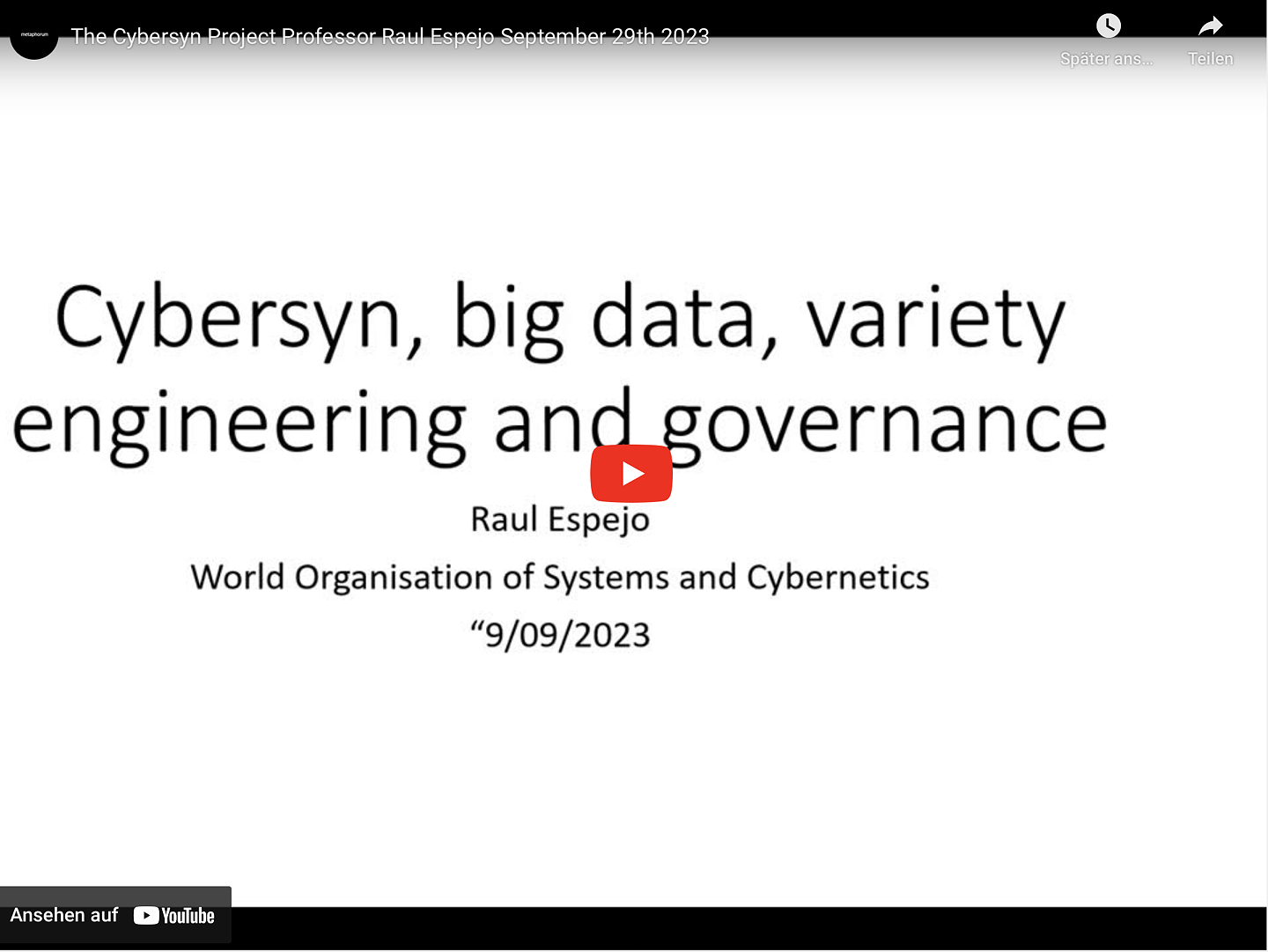
In this contribution Raul relates Cybersyn’s vision to a democracy, beyond its current denomination closer to a capitalist democracy. Cybersyn’s vision was that of a world of communications and information in real time, a world of conversation spaces to balance the short and long term. It offered a utopian form of governance aimed at an egalitarian and non-bureaucratic society. It wanted participation, democracy, and accountability. It was a utopia for democratic viability rather than for democratic capitalism. After half a century we can reflect upon its meaning taking into account social, economic and technological developments since 1973.
Speaker Bio
Former Professor of Systems and Cybernetics at the University of Lincoln, UK, and currently president of the World Organisation of Systems and Cybernetics -WOSC. He has chaired scientific committees of WOSC’s most recent world congresses in 2014 (Colombia), 2017 (Italy) and 2020/21 (Moscow online).
His research is focused on organisational cybernetics and systems and has published and co-published over 120 papers, seven special issues of journals and five books. This published work includes the book: “Organizational Systems: Managing Complexity with the Viable System Model” (published with A Reyes in English in 2011 and 2016 in Spanish) and a special issue of the Futures journal: Futures of Society; the interactions revolution (2018). Under the scientific direction of Professor Stafford Beer he was operations director of the CYBERSYN project – organised in the context of the Chilean government to manage the country’s industrial economy Cybersyn, economics, and technology.
